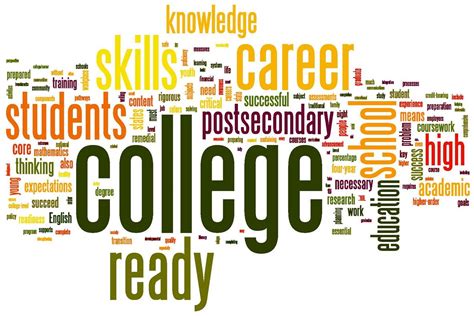Introduction

As you approach the culmination of your undergraduate journey, it’s time to gauge your preparedness for the transition into the professional world. College seniors face a pivotal threshold, where the knowledge and skills acquired during their academic career must translate into a successful post-graduate experience. This comprehensive test has been meticulously designed to assess your competencies across various domains, empowering you to identify areas for growth and maximize your potential.
Test Overview
The test comprises six sections, encompassing core cognitive abilities, career preparedness, financial literacy, emotional intelligence, health and well-being, and social responsibility. Each section assesses a distinct set of skills and knowledge, providing a comprehensive evaluation of your readiness for the challenges and opportunities that lie ahead.
Section 1: Cognitive Abilities
Cognitive abilities constitute the foundation upon which your success in the post-graduate world will be built. This section tests your:
- Critical thinking and problem-solving skills
- Analytical and logical reasoning abilities
- Reading comprehension and written communication skills
- Quantitative literacy and mathematical proficiency
Section 2: Career Preparedness
Preparing for your career is an essential element of a successful transition. This section assesses your:
- Career exploration and planning skills
- Networking and relationship-building abilities
- Job search techniques and interview preparation
- Career development strategies
Section 3: Financial Literacy
Financial literacy is crucial for managing your finances responsibly in the post-graduate world. This section tests your:
- Budgeting and expense tracking skills
- Credit management and debt avoidance strategies
- Investment knowledge and risk assessment
- Retirement planning and financial security
Section 4: Emotional Intelligence
Emotional intelligence plays a vital role in workplace success and personal well-being. This section assesses your:
- Self-awareness and self-regulation abilities
- Empathy and interpersonal skills
- Conflict resolution and mediation techniques
- Stress management and coping mechanisms
Section 5: Health and Well-being
Maintaining good health and well-being is essential for productivity and overall success. This section assesses your:
- Physical health, including exercise and nutrition habits
- Mental health, including stress management and coping skills
- Sleep hygiene and time management
- Substance use and risk-taking behaviors
Section 6: Social Responsibility
As a college graduate, you have a role to play in creating a socially responsible and sustainable society. This section assesses your:
- Civic engagement and volunteerism activities
- Environmental awareness and sustainability practices
- Cultural sensitivity and diversity appreciation
- Ethical decision-making and social justice principles
Why This Test Matters
Taking this test provides numerous benefits:
- Self-Assessment: Gain insights into your strengths and areas for improvement.
- Career Exploration: Identify potential career paths that align with your skills and interests.
- Decision-Making: Make informed choices about your post-graduate future.
- Confidence Boost: Enhance your confidence in your abilities as you prepare for the job market.
- Resume Enhancement: Showcase your test results to potential employers, demonstrating your preparedness.
Common Mistakes to Avoid
When taking the test, it’s important to avoid common mistakes that could impact your results:
- Rushing Through the Test: Take your time and carefully consider each question.
- Guessing: If you’re unsure of an answer, use the process of elimination or flag the question for later.
- Not Reading Instructions: Pay attention to the instructions provided for each section to ensure you’re answering the questions correctly.
- Overthinking: Trust your instincts and don’t get caught up in overanalyzing the questions.
- Comparing Yourself to Others: Focus on your own performance and identify your unique strengths and areas for growth.
Effective Strategies
To perform well on the test, consider the following effective strategies:
- Prepare Thoroughly: Review relevant materials and practice your skills in each section.
- Manage Your Time Wisely: Allocate sufficient time for each section based on its weight.
- Use the Resources: Utilize the provided resources, such as calculators and passage excerpts.
- Seek Feedback: After completing the test, seek feedback from a career counselor or professor to identify areas for further development.
- Stay Positive: Approach the test with a positive mindset and a willingness to learn.
Conclusion
The Test for College Seniors is an invaluable tool for assessing your readiness for the post-graduate world. By taking this test, you can identify your strengths, address your areas for improvement, and gain confidence in your abilities. The insights gained from the test will empower you to make informed decisions, navigate the job market effectively, and transition seamlessly into the next chapter of your life.
Additional Resources
- Career Planning and Development for College Seniors
- Financial Literacy for College Seniors
- Emotional Intelligence for College Seniors
- Health and Well-being for College Seniors
- Social Responsibility for College Seniors
Tables
| Cognitive Abilities | Section Weighting |
|---|---|
| Critical thinking and problem-solving | 30% |
| Analytical and logical reasoning | 25% |
| Reading comprehension and written communication | 25% |
| Quantitative literacy and mathematical proficiency | 20% |
| Career Preparedness | Section Weighting |
|---|---|
| Career exploration and planning | 30% |
| Networking and relationship-building | 25% |
| Job search techniques and interview preparation | 25% |
| Career development strategies | 20% |
| Financial Literacy | Section Weighting |
|---|---|
| Budgeting and expense tracking | 30% |
| Credit management and debt avoidance | 25% |
| Investment knowledge and risk assessment | 25% |
| Retirement planning and financial security | 20% |
| Emotional Intelligence | Section Weighting |
|---|---|
| Self-awareness and self-regulation | 30% |
| Empathy and interpersonal skills | 25% |
| Conflict resolution and mediation techniques | 25% |
| Stress management and coping mechanisms | 20% |
